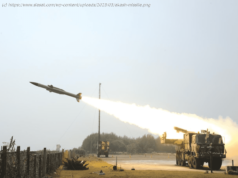The fall of Syrian President Bashar Assad’s government has brought to a dramatic close his nearly 14-year struggle to hold onto power as his country fragmented amid a brutal civil war that became a proxy battlefield for regional and international powers
The fall of Syrian President Bashar Assad’s government Sunday brought to a dramatic close his nearly 14-year struggle to hold onto power as his country fragmented amid a brutal civil war that became a proxy battlefield for regional and international powers.
Assad’s downfall came as a stark contrast to his first months as Syria’s unlikely president in 2000, when many hoped he would be a young reformer after three decades of his father’s iron grip. Only 34 years old, the Western-educated ophthalmologist was a rather geeky tech-savvy fan of computers with a gentle demeanor.
But when faced with protests against his rule that erupted in March 2011, Assad turned to the brutal tactics of his father in an attempt to crush them. As the uprising hemorrhaged into an outright civil war, he unleashed his military to blast opposition-held cities, with support from allies Iran and Russia.
International rights groups and prosecutors alleged widespread use of torture and extrajudicial executions in Syria’s government-run detention centers.
The Syrian war has killed nearly half a million people and displaced half the country’s pre-war population of 23 million. As the uprising spiraled into a civil war, millions of Syrians fled across the borders into Jordan, Turkey, Iraq and Lebanon and on to Europe.
His departure brings an end to the Assad family rule, spanning just under 54 years. With no clear successor, it throws the country into further uncertainty.
Until recently, it seemed that Assad was almost out of the woods. The long-running conflict had settled along frozen conflict lines in recent years, with Assad’s government regaining control of most of Syria’s territory while the northwest remained under the control of opposition groups and the northeast under Kurdish control.
While Damascus remained under crippling Western sanctions, neighboring countries had begun to resign themselves to Assad’s continued hold on power. The Arab League reinstated Syria’s membership last year, and Saudi Arabia in May announced the appointment of its first ambassador to Syria since severing ties with Damascus 12 years earlier.
However, the geopolitical tide turned quickly with a surprise offensive launched by opposition groups based in northwest Syria in late November. Government forces quickly collapsed, while Assad’s allies, preoccupied by other conflicts — including Russia’s war in Ukraine and the yearlong wars between Israel and the Iran-backed militant groups Hezbollah and Hamas — appeared reluctant to forcefully intervene.






